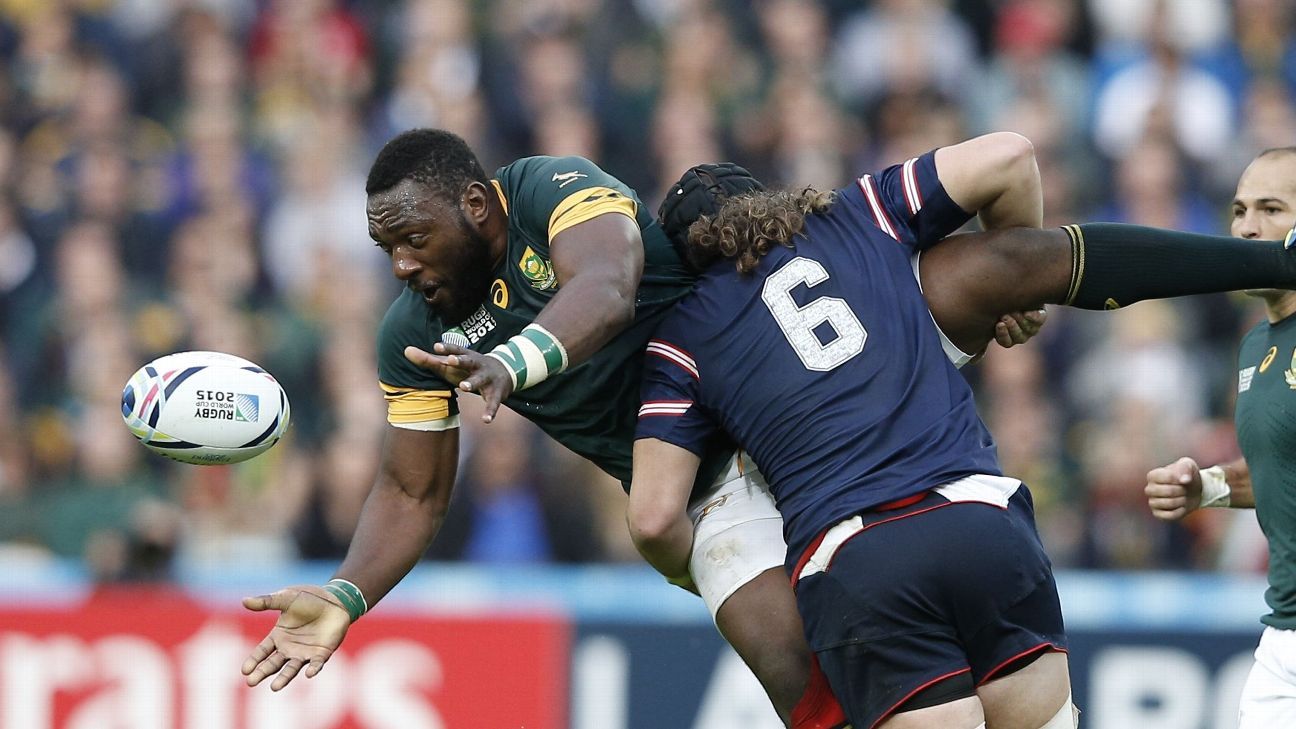Tendai ‘Beast’ Mtawarira, the World Cup-winning former South Africa prop, has backed the USA’s potential as a rugby nation, but said they will need a structural overhaul before they can match emerging superpower Japan.
Mtawarira was part of the Springboks side that lost 34-32 to Japan in the historic 2015 Rugby World Cup clash in Brighton, but also played in the team that settled the score against the same opponents in 2019 with a 26-3 win in Tokyo en route to the rugby World Cup title, which they then defended last year.
‘Beast’ had already retired by the time the Boks went back-to-back, having wound down his rugby career in the United States with Old Glory DC in 2020.
Mtawarira told ESPN when asked if the US could emulate Japan’s success: “I certainly believe so, but I believe it’s a long way from now. I just believe that there’s a lot that needs to happen for USA Rugby to start competing with the likes of Japan and other top tier nations.
“They need to have more investment come into rugby – bringing in the private and public sector to invest in the sport. They need to acquire TV rights on some of the mainstream TV [channels], so that the average American can familiarise himself or herself with the game.
“When you travel across the US, you get to meet a lot of Americans that have got no idea what rugby is, which is quite a major concern. I also think that they need to invest in grassroots, because they don’t have rugby as a sport in high school or primary school.
“They will harness the skills early on, they will learn about the game, and then they will have another option instead of American football. There’s a lot of work that needs to be done for USA rugby to get to where Japan is.”
Houston Texans center/guard Dieter Eiselen previously told ESPN that an obstacle to American football’s growth in South Africa is traditional rugby schools’ unwillingness to introduce a rival sport, but Mtawarira believes that there is room for American football and rugby to co-exist in the States, given the country’s population size.
He said: “I don’t think it will be similar, because I just believe that in the US, they have a population of [around] 350 million people and we obviously have 55 or so million people, so they have a much bigger pool of players.
“When you look at some of their stats, not even 1% of college players get into the NFL. Imagine: you’ve got all this ample talent and Americans love playing physical sports, collision sports, and rugby is that.
“If you can’t play NFL or make it professionally [in American football], you’ve got the option to play another game – like rugby – where you can smash people and have a lot of fun.
“So I believe that if they have it as one of the school sports, then it will just have that much bigger impact and there’s so many kids out there that could possibly play.”
Mtawarira urged rugby and other major sports in South Africa to learn from basketball – a sport of which he has been a fan since his childhood in Zimbabwe, attending games in the NBA and Basketball Africa League in recent years – in terms of marketability.
“I’ve been privileged to go to a lot of NBA games, BAL games, and my take from that is that back home [in South Africa], we need to make sports more wholesome in terms of the family environment that we create,” said Mtawarira.
“For instance, at a rugby match, we need to have a more family-orientated environment. What I enjoyed most about sitting courtside and watching NBA games: there’s a lot of competitions, a lot of games for the families. They just make it an incredible atmosphere and experience for everyone.
“If you want to draw in the crowds, you have to first make sure you have the kids nagging their parents every weekend to go and watch a game, because they know there are going to be fun activities for them.
“I think when you look at the other side of it – from the players themselves on the field, on the court, there’s a lot of characters and a lot of unique stories that are amplified. I think a lot of fans buy into that.
“I think it’s something that we can bring back home in terms of putting names on the back of jerseys, because people for instance will buy a LeBron James jersey because they’re all about LeBron James – they love his story – and other players [such as] Steph Curry.
“I think we’re too conservative on this side of the world and I think we should embrace some of these things to make our sport more interactive and more engaging for our fans.”
Japan’s Rugby League One airs on ESPN’s channels in Africa.
